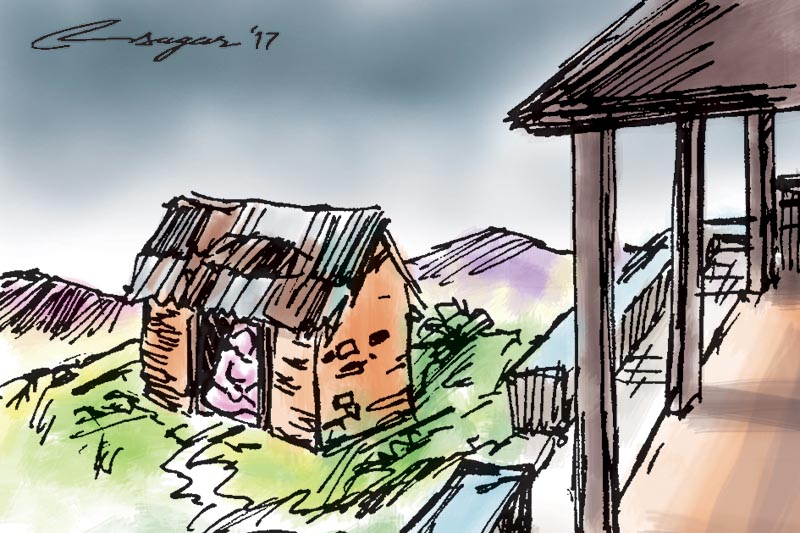Eight in 10 girls in western Nepal forced to sleep outside during periods
KATHMANDU: Teenage girls are still being forced to sleep outside during their periods in parts of Nepal despite a string of deaths and a law banning the ancient custom, researchers said on Tuesday.
A new study published days after the latest victim suffocated to death found nearly eight out of 10 girls in Karnali, a province in western Nepal where the practice is prevalent, were banished from their homes while menstruating.
Because menstruating girls and women are viewed as impure, many have to sleep in huts, where they are at risk of being raped, bitten by snakes or dying from carbon dioxide poisoning from fires lit to keep warm.
"The women and girls we spoke to were terrified of snakes and animals coming in at night, or of being attacked by strangers," said Jennifer Thomson, who worked on the study, published in the journal Sexual and Reproductive Health Matters.
"Even if they hadn't experienced that directly, the psychological stress of that was quite real," added Thomson, a lecturer in comparative politics at Britain's University of Bath.
The centuries-old Hindu practice known as chhaupadi was outlawed in 2005, but penalties including a fine and jail time were only introduced last year after the deaths of a teenager and a mother and her sons led to a parliamentary investigation.
Researchers interviewed 400 girls aged between 14 and 19 in mid-Western Nepal's Karnali province for the study and found 77% practised chhaupadi despite the ban.
Even in wealthier urban households, where it was less common, about two-thirds of girls said they practised chhaupadi.
The study came less than a week after Nepali police arrested the brother-in-law of a woman who died of suffocation in a hut - the first such arrest in the Himalayan country.
But activists said more needed to be done to raise awareness and combat the perception that menstruating women and girls are impure and can bring misfortune on their communities.
"An integrated approach of health and education must be reached to every household and educate people that menstruation is a biological process and it does not make women impure," said women's rights campaigner Radha Paudel.
"Menstruation must be considered as a dignified, natural thing. Otherwise things will not change," she told the Thomson Reuters Foundation.
In many communities, menstruating women and girls are not allowed to meet other family members or venture out, must eat frugally, and are barred from touching a range of items including milk, religious idols and cattle.
But there are signs that attitudes are changing - last week, a village in western Nepal announced a reward of 5,000 Nepali rupees ($44) for each woman who refused to be confined to a hut, in a bid to end the practice.
"This is about changing deeply ingrained cultural practices and behaviours, and while changing the law is important, this study shows it's going to take much more than that," said Thomson.





